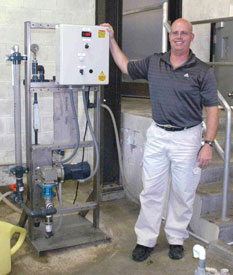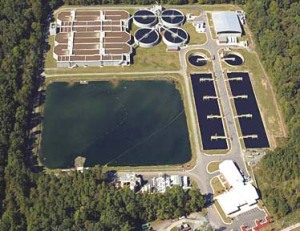We are drawn to the big events, the headline news or the hot item for debate. But I believe our lives are defined not by the drama, but the mundane small details that make up our lives. Like the air we breathe or the water we drink or flush, we can take these small things for granted. Sometimes we overlook the value of those we charge with this important work. I want to address the issue of water operators in the state of Idaho.
The state licenses water facilities at different levels, from very small then levels 1-4. These levels apply to drinking water and waste water plants. If a city has a water plant of a certain level they need operators with a corresponding level of license.
The board that controls the licensing of water operators recommended a rules change that would require some education beyond high school for operators that rose above the first level. This requirement was strongly opposed by small cities. Currently, most cities hire someone out of high school as a level 1 operator, and then the worker can rise through the levels with on-the-job experience. There are some classes available on line. This is what my town Moscow, Idaho has done. I was told the entry Level 1 payment was about $18/ hour( range $13.76-$20.65). Level 2 goes up to $18.50/hr but Level 3 could go all the way up to $26/hr ($50,000/ yr; hourly range $17.34-26.01, $10,000 above the Idaho average). Our Human Resources person said it was almost impossible to hire the level 2 or higher from outside.
Is this fair pay? If there really was such a short supply you’d think the pay rate would go up. Maybe the entry level folks guarantee a supply as they slowly climb the ladder of experience. I wonder if we are affecting the market for this occupation. I voted with the cities to keep on-the-job training as a way to advancement. But I wonder how this is affecting the career.
A public works manager from Emmett told how hard it was to take time off to get classes to go up from a level 1 to a level 3. His city had passed a multimillion dollar bond levy (by > 90%!) to upgrade their water treatment facility. But they couldn’t afford to hire a trained level 3 operator because the person from out of state wanted $60,000 a year.
So the irony for me here is how a city will chose to tax itself for a quality water plant, but can’t see the value in paying a good salary for the person that keeps it running. This has contributed to our wage gap dilemma.
I spoke with some folks who offer training and suggested to them we get classes in some community colleges available. I don’t know if classroom education would be better than on-the-job. Maybe with the popularity of Dirty Jobs we can inspire some careers in Water Operation. But if the supply of operators goes up, the pay will go down. Fair pay for good work isn’t too much to ask. It looks like a good career to me, truly public service.


